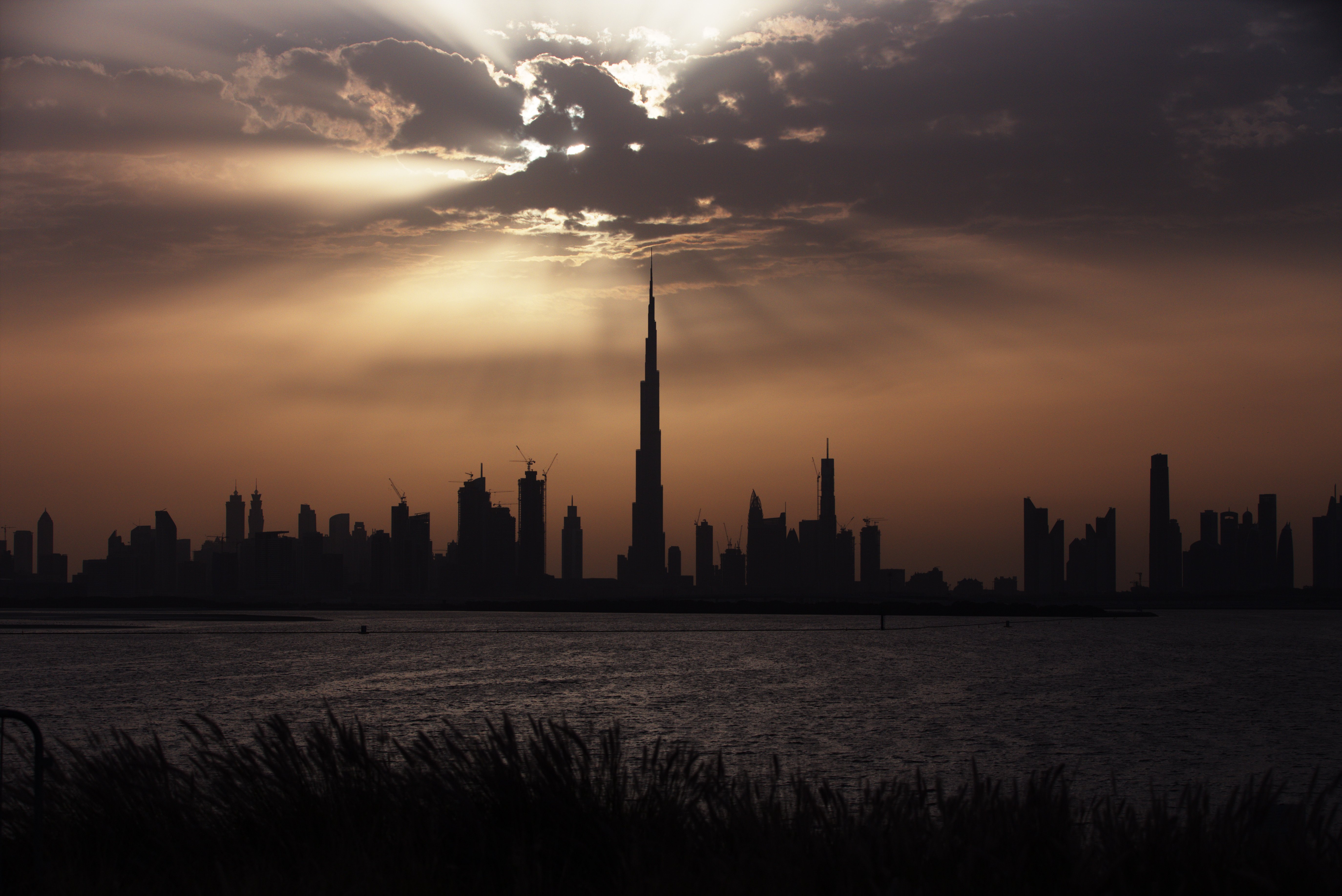🇦🇪map United Arab Emirates [Overview]

The United Arab Emirates, written in Arabic as Al-Imārāt al-‘Arabīyah al-Muttaḥidah, sits on the southeastern edge of the Arabian Gulf with the Gulf of Oman along its east. It is a federation of seven emirates—Abu Dhabi, Dubai, Sharjah, Ajman, Umm Al-Quwain, Ras Al-Khaimah, and Fujairah—formed in 1971. Most people live in dynamic coastal cities, and Abu Dhabi Emirate accounts for the vast majority of the country’s land area. Before oil, communities here thrived on desert pastoralism, oasis farming, pearling, and maritime trade, and those roots still shape local identity and hospitality today.
Economy
The economy is highly diversified by Gulf standards. Oil and gas remain the backbone—especially in Abu Dhabi—but you’ll find large service sectors spanning finance, logistics, tourism, aviation, construction, and professional services. Dubai, in particular, has become a hub for trade, tech startups, media, and events, while Sharjah has a strong manufacturing base and cultural industries. Daily work life for many expatriates revolves around corporate roles, education, healthcare, engineering, and hospitality, while a sizable workforce supports construction, retail, and transport.
Natural resources include hydrocarbons and strategic mineral wealth, but geography is also an asset: ports and free zones link Asia, Africa, and Europe, and the UAE’s airlines and airports connect most major global cities with frequent nonstop flights. The country is integrated into regional and global bodies and partnerships, aligning closely with Gulf neighbors and maintaining active trade and investment ties across Europe, Asia, and Africa. For professionals, that connectivity makes the UAE a launchpad for careers and businesses serving wider regional markets.
Culture
Arabic is the official language and used in government and daily Emirati life, while English is widely spoken in business, education, and services. The population is multiethnic, with Emirati citizens as a minority and large communities from South Asia, the wider Arab world, Europe, and elsewhere. Historically, the emirates were small coastal and oasis settlements shaped by Bedouin desert traditions and seafaring commerce—especially pearling—before oil wealth fueled rapid modernization and urban growth in the twentieth century. Today’s cities blend glass-and-steel skylines with heritage quarters, souks, and majlis culture that prizes hospitality.
Islam is the predominant religion and informs social customs, public holidays, and the rhythm of the year. People take pride in family life, traditional cuisine, poetry, falconry, camel racing, and dhow heritage, alongside a thriving contemporary scene of art fairs, design weeks, sports tournaments, and international concerts. National Day in early December is celebrated across all emirates, and the holy month of Ramadan and the Eid holidays bring communal gatherings and festive atmospheres. As a newcomer, you’ll find a welcoming mix of tradition and global energy—much of daily life runs comfortably in English while giving you ample chances to engage with Emirati culture.
Liam
Liam is an international business advisor and expatriate consultant originally from Dublin, Ireland,
with over 16 years of experience in European, Middle Eastern, and Asia-Pacific markets. Having worked
for major global consulting firms and managed corporate relocations across the UK, Ireland, UAE, and
Oceania, Liam has extensive experience helping professionals navigate international assignments in
English-speaking markets and key business hubs. His background includes facilitating moves for both
European professionals expanding globally and international talent relocating to the UK, Ireland,
Australia, New Zealand, and the Gulf region.
Published: 2025-02-12